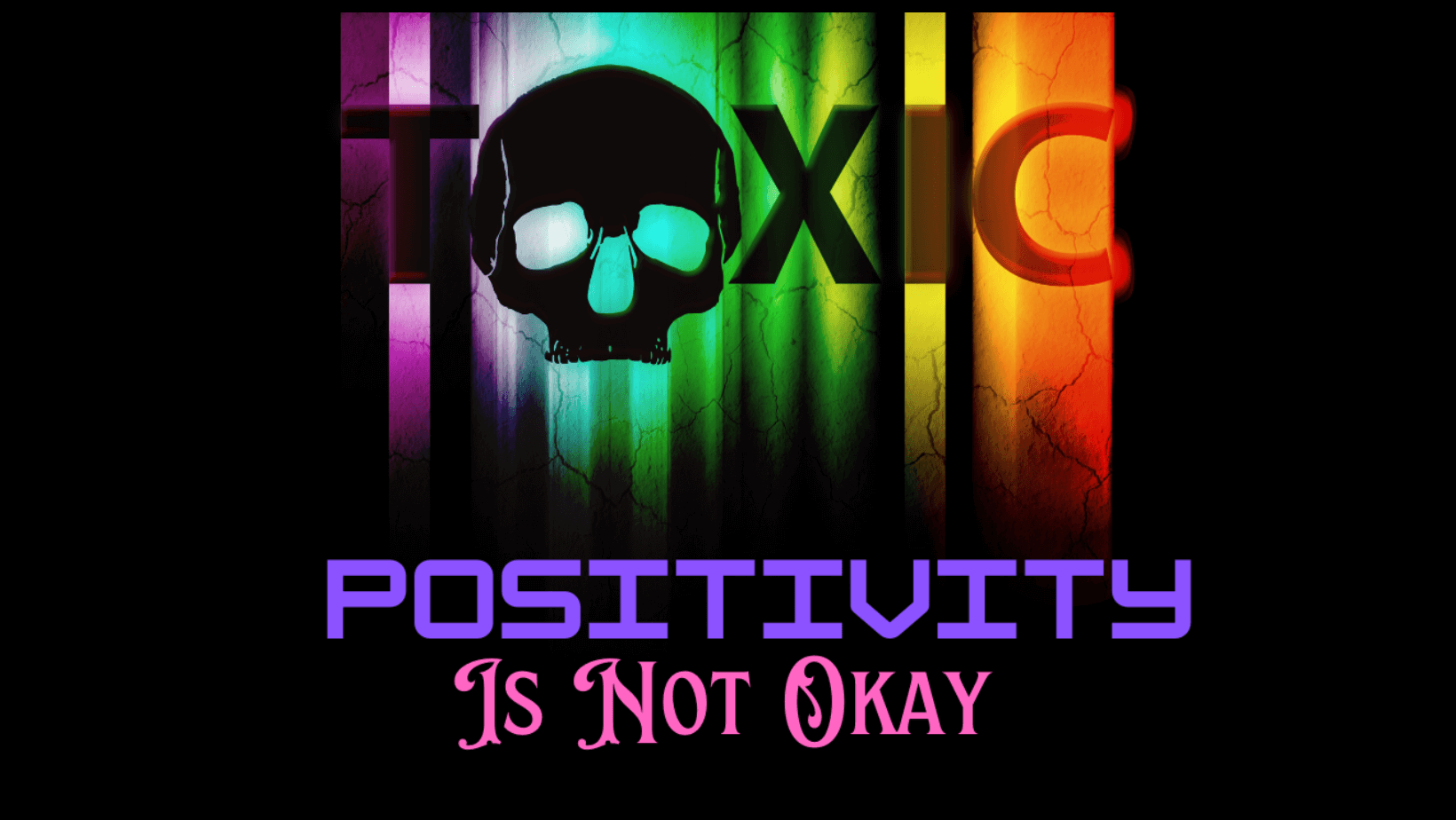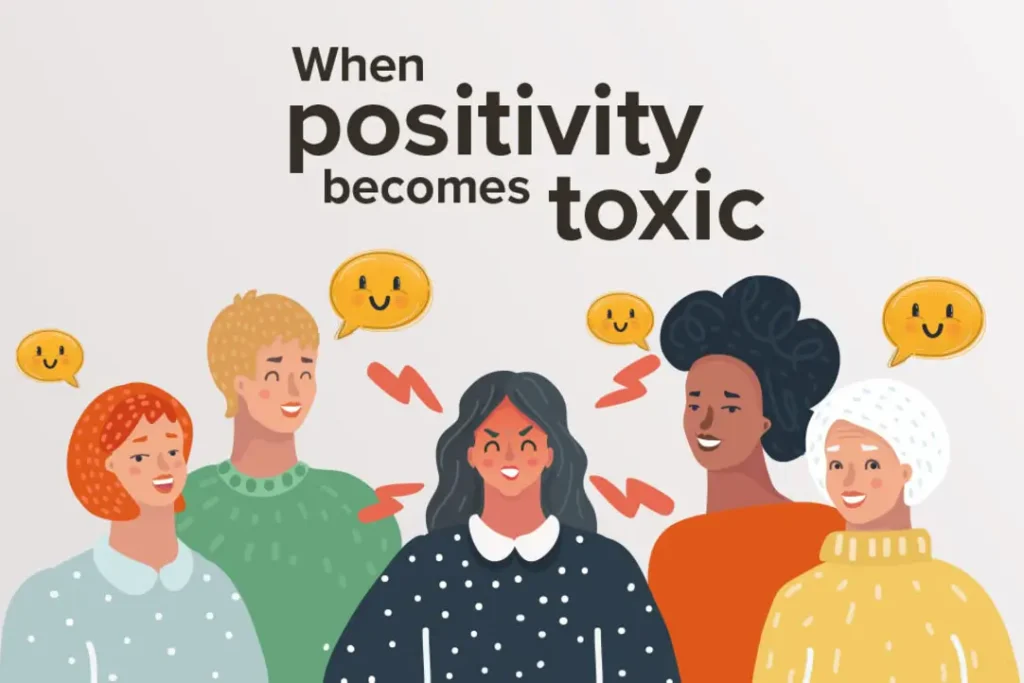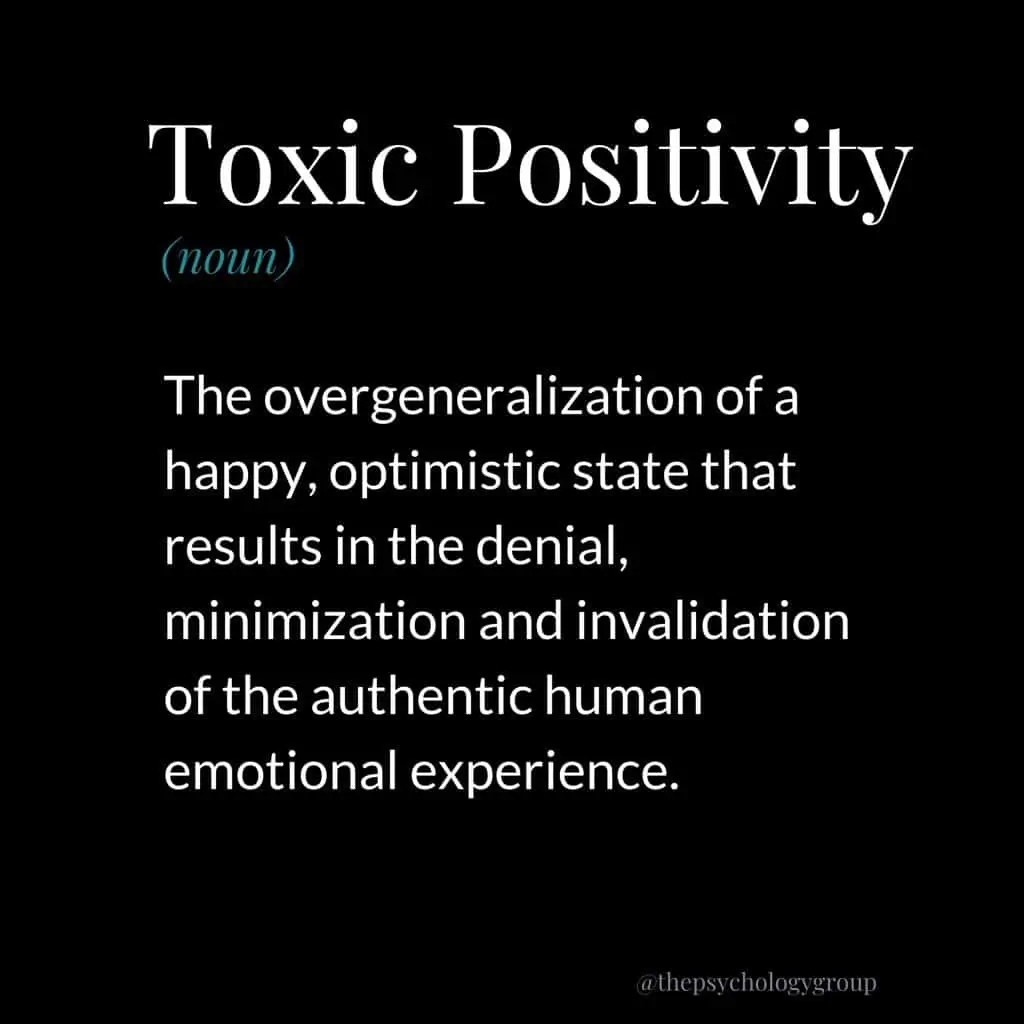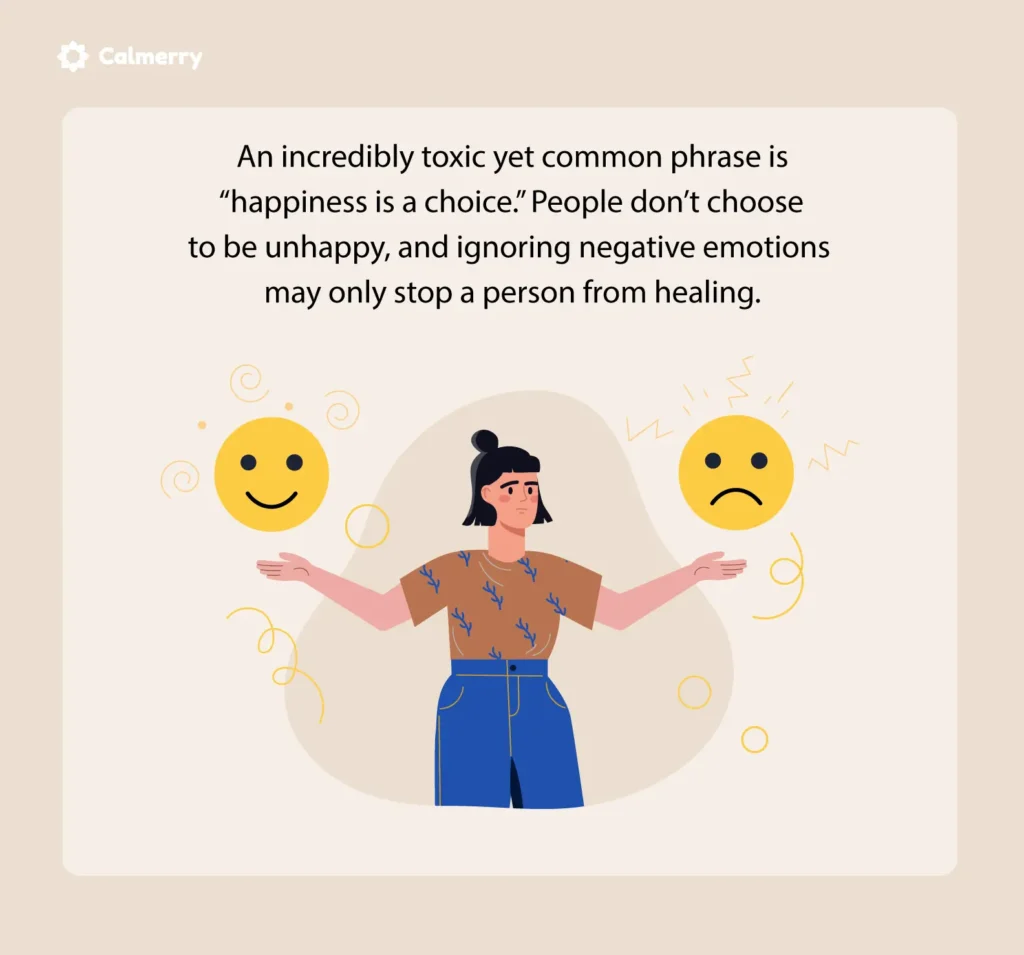
Some Background Information
We hear “think positive” all the time. “Look on the bright side,” always has good intentions. These phrases feel helpful. However, sometimes the advice can make things far worse. So, this is toxic positivity. This is forcing yourself to be happy. This is ignoring legitimate feelings. Let’s expose those dangers. This topic affects countless lives.
What is Toxic Positivity?
Toxic positivity is a dangerous mindset. It is all about positive thinking. It demands unrelenting joy. Also, it suppresses negative experiences. It forces gratefulness. Even, it declares, “good vibes only.” Even in the midst of battles, it minimizes your hurt and despair for whatever happiness you may have. It denies the reality of your struggles.
Toxic positivity is not the same as healthy positivity. Healthy positivity allows for hope. It shows strength and allyship amidst adversity and dare I even say trauma. Also, it tells you it is ok to be broken, sad, or angry. Healthy positivity allows you to sit with these states, process them, and move on. Toxic positivity tells you to deny your state. Toxic positivity shames you for being in your state. Also, toxic positivity gives an artificial face to something real.

Read more: Truth of Manifestation: Law of Attraction?
The Serious Consequences: Why It Is Dangerous
Toxic positivity pushes people to hide their true feelings. You may feel shame. You may feel guilty. Or, you feel bad for being sad. You think something is wrong with you. This leads to isolation. You are bottling emotions up. You don’t share your pain. This stops true healing. This stops healthy coping.
This forced joy can break trust. People don’t feel heard. They feel misunderstood. Friends may stop sharing. Family members feel distant. They learn to keep things to themselves. So, relationships suffer. Connection moves towards platonic relationships. And people feel lonely.
Emotional Prisons: Psychological Perspective
The consequences of suppressing emotions are costly. Psychologists are aware of this fact. Our emotions act as signals. They indicate what we need. They influence our behaviours. When we bury our emotions, they aren’t simply erased. They are instead trapped within our bodies. The energy of that trapped emotion is problematic. It leads to internal conflict. It leads to psychological distress.
Research demonstrates that individuals who frequently suppress their emotions endure higher levels of anxiety and depression over time. There is a cost here, as you can see. Bottling up emotions affects the brain. It influences cognitive processes. It influences our responses. Also, it decidedly depicts a compromised state of mental health.
The Value of Validation: Connection as Healing
Toxic positivity invalidates feelings. When a person states, “don’t be sad, just be happy!” they are effectively telling us, your sadness is incorrect. This message is hurtful. It is invalidating. It designates us as undiscerned. Also, it delegitimizes our feelings. Empathy is rather different. It’s listening. It’s acceptance.Also, it’s expressing “I know you’re hurting!” Validation is the simple process of communicating.
Validation reinforces a strong bond. It establishes psychological safety. It allows people to feel acknowledged. Also, it has the potential to create a sense of being unaccompanied. This psychological safety is critical. It develops relational capital. It nourishes mental health.
The Numbers Say it All: Data about Emotion.
The suppression of emotion is widespread. A 2023 survey showed that nearly 60% of young adults said they regularly mask their true feelings so that they appear strong or positive. This trend is not limited to the United States. Moreover, research indicates that emotional suppression is associated with a 25% greater risk of developing cardiovascular disease over time. This suggests physical consequences.
These statistics symbolize an unmistakable danger. Putting a positive front on things affects a lot of people. This has actual consequences. It affects mental health and physical health. We need to learn to express ourselves. We need to embrace all our feelings.

Islamic Insight: Emotional Aptness
Islam promotes a balanced way of living, including a hope in Allah (SWT) during the difficulties of life. Islam promotes patience (Sabr) during the difficult times. It doesn’t demand that we always feel happy. Islam acknowledges the nature of emotions as part of being human. Sadness, grief, and fear are also human emotions.
The Prophet Muhammad (PBUH) experienced all of these feelings. Notice that when his son Ibrahim died while he was young, the Prophet cried! His companions asked him, “You cry, O Messenger of Allah?” His response was this: “This is mercy!” He explained, “The eyes shed tears, and the heart grieves, yet we say only that which pleases our Lord.” This is a perfect balance. To allow sorrow, yet express one’s faith.
And We will surely test you with something of fear and hunger and a loss of wealth and lives and fruits, but give good tidings to the patient.
” (Surah Al-Baqarah, 2:155).
The verse acknowledges fear and loss, and emphasises patience when feeling fear and loss. Islam teaches about Tawakkul, trust in Allah’s plan, and reminds us that we should be grateful. But it also alludes to trials (ibtila) – trials that become tests that bring us closer to Allah. It does allow for pain. It does require patience. Also, it does teach us to seek comfort from Allah. But, it does not instruct us to ignore our human feelings.
Read more: Overthinking Blocks Intuition—Break Free
Identifying Toxic Positivity: A Checklist
See if you have heard, or even said, any of these phrases:
- “Just be positive!”
- “Good vibes only!”
- “Everything happens for a reason!”
- “Don’t worry, be happy!”
- “It could be worse!”
- “Just pray it away!”
- “Don’t be so negative!”
These phrases are often invalidating. They dismiss your feelings. They make you feel judged.

How to Respond in a Healthy Way: True Empathy
When you exhibit empathy and concern for others, you are often able to help others even more. At the same time, you can help yourself. Here are some ideas on engaging in healthy empathy:
- Validate Feelings: Say, ‘I hear you.’ Or, ‘That sounds tough.’
- Listen: Listen actively and give them your full attention. Don’t shut them down.
- Offer help: Ask ‘What can I do to help you?’ Or, ‘I am here for you.’
- Share vulnerability: If you think it’s appropriate, share your vulnerabilities. People crave connection.
- Allow feeling: Let them feel their sadness. Let them feel their anger. Don’t rush them.
- Be compassionate with yourself: Be gentle and generous with yourself and allow yourself to feel.
Sponsor an environment that allows all emotions: The Healing Road to Well-being
Real strength is to be open. Real strength means accepting a range of feelings. Moreover, real strength means all feelings, including negative feelings. Ignoring and pushing away negative feelings is harmful. In fact, denying and pushing away negative feelings worsens your health. When you deny and suppress negative feelings, you isolate yourself. When you deny and suppress all feelings, you are stopping yourself from healing. You are pushing away a part of your humanity.
But, you want the opposite; you want to allow all of your feelings. Allow yourself to feel all your feelings. Allow others to feel all their feelings. Also, allow yourself to have real empathy and feel connected to others and yourself. This is true resiliency. This is real happiness. This makes your deep relationships stronger. This promotes true well-being. You need to let yourself feel. So, give yourself and others healthy ways of expressing those feelings. Hence, knowing you took the time to allow your mind and body to feel will be appreciated.



Leave a Reply